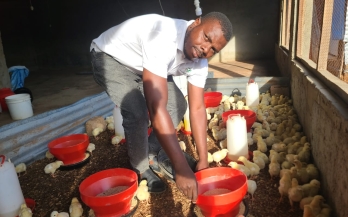

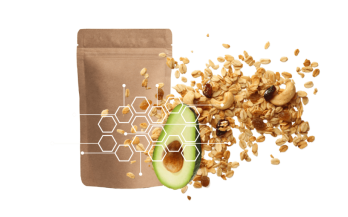
Improving affordability of nutritious foods through packaging innovations
Food packaging is ubiquitous in the modern world but also easily forgettable: once we’ve dumped the crackers out of their bag and into our hand, or scraped the last of the yoghurt out of the bottom of its plastic pot, we usually toss the packaging into the bin without a second thought.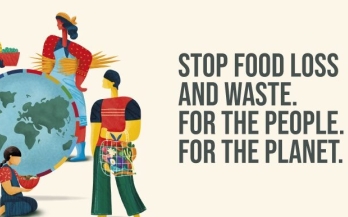
From Trash to Table? Opportunities for Repurposing Waste Products into Nutritious Foods
If food waste were a country, it would be the world’s third-largest greenhouse gas emitter, after the U.S. and China: not only does it represent the use of resources and environmental impact without a clear benefit, but as it decomposes in landfills, it releases methane and carbon dioxide. What if some of this could be avoided, and in a way that improved access to safe, nutritious foods for those who need them?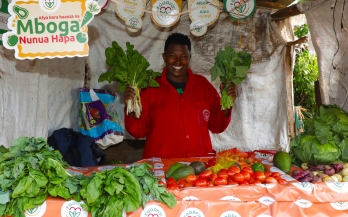
Vegetables for Health and Prosperity: Mary Wamuyu’s Journey to Nourish Her Community
Mary Wamuyu Gathemia, a 41-year-old mother of two, runs a vibrant vegetable stall in Muthumi Village, Muguga Ward, Kabete Sub-County, Kiambu County. For years, Mary operated a small general shop selling household items and a few groceries. However, her shop struggled to break even, and she was on the verge of closing it to focus on being a housewife.
GAIN in Action for Youth: Building Tanzania’s Food Systems and Futures through Entrepreneurship
In Tanzania, nearly 70% of the population is under 30 - a generation full of energy and potential. Yet, for many young people, finding meaningful work isn’t easy. Agri-food jobs could offer huge opportunities, but the section is often seen as outdated and unappealing to youth. The Global Alliance for Improved Nutrition (GAIN) funded by the Master Card Foundation through AGRA is working to shift this narrative through the Youth Entrepreneurship for the Future of Food and Agriculture (YEFFA) initiative, supporting young Tanzanians to find jobs and turn the sector into a vibrant space for innovation.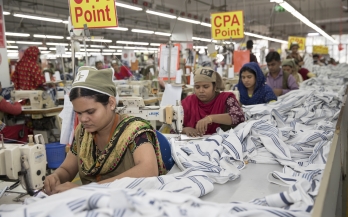
Bangladesh Sets the Pace: Government Champions Workforce Nutrition
Every day, millions of workers in Bangladesh’s bustling garment factories often face challenges in accessing safe and nutritious food due to long working hours and affordability constraints. Bridging this gap, the Global Alliance for Improved Nutrition (GAIN) pioneered the implementation of workforce nutrition programme - Strengthening Workers Access to Pertinent Nutrition Opportunities (SWAPNO) since 2015. What began as canteen improvements, Fair Price Shops (FPS), and targeted micronutrient supplementation efforts in a handful of factories have now snowballed into a full-fledged national movement.What is the Nutrition Futures Initiative?
This initiative is a community of public officials, development sector professionals, private-sector entrepreneurs, and social innovators who are committed to improving the nutrition impacts of social protection systems. The aim of the platform is to advance innovative solutions that enhance the effectiveness, sustainability, and returns on investment for nutrition services in social protection programmes in the Global South.
The initiative seeks to bring diverse stakeholders together to critically examine the most pressing barriers to nutrition impacts in social protection systems and to co-create innovative solutions that are context-adapted and scalable.
The Problem We're Trying to Solve
- Barriers to innovation constrain the nutrition impacts of social protection systems.
- There are no purpose-built platforms to support collaboration and innovation for nutrition in social protection systems.
- South-South and North-South cooperation and knowledge exchange can break down barriers, but there aren't dedicated, publicly-accessible platforms for supporting such collaborations.
- Actors making critical design decisions don't have practical options for getting meaningful, constructive insight from local communities and households.
- Systems aren't advancing fast enough to safeguard nutrition-secure futures for all.
Our Vision
We envision a future where social protection systems effectively and sustainably safeguard nutrition-secure futures for the world's most vulnerable people.
Our Mission
Support governments and other system actors to improve the nutrition impacts of social protection systems by fostering co-innovation and South-South knowledge exchange.
Our Values

01 CREATIVITY
We encourage out-of-the-box thinking, and urge ourselves and our stakeholders to think boldly. We do not shy away from uncharted territory and firmly embrace the unknown.

02 COLLABORATION
We embrace co-innovation, and create spaces where people can work together and leverage their diverse and complementary skills.

03 INCLUSION
We value all viewpoints, including and especially those that go against the norm. We see all stakeholders as equal partners and make a conscious effort to give voice to those who are usually kept silent.

04 EMPATHY
We maintain a rigorous commitment to human-centered design, and take care to ensure that all our work is guided by the insights of community members and the ultimate end-users of social protection benefits and services.
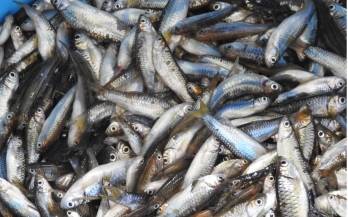
Advancing small fish production in Indonesia: Increasing protein and reduce waste
Back then, a lot of bilih were caught by fishermen, then cleaned by women, sometimes even children joined in to earn a bit of extra pocket money before being sold to buyers. But now, it is different’ Prof. Hafrjial Syandri, Bung Hatta University.
Turning Commitments into Action: Ethiopia Advances Nutrition for Growth (N4G) Promises with Bold Accountability Measures
Ethiopia faces persistent malnutrition and emerging diet-related challenges. Nutrition for Growth (N4G), a pledging movement in which the world’s leaders have committed to centre nutrition, offers a platform to mobilize multisectoral action and accountability. GAIN offers technical expertise in food systems and nutrition governance, to support Ethiopia translate its national strategies in its goal of supporting the Government of Ethiopia (GoE) in accelerating its progress towards Food System Transformation.